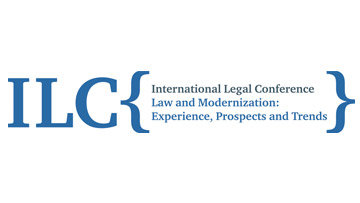Vladimir Novikov, RAPSI
During the first day of the conference “Law and Modernization: Experience, Prospects, Trends” organized by the Russian Legal Information Agency (RAPSI/rapsinews.com) and RIA Novosti, participants summed up the results of the outgoing year and spoke about important legislative innovations that will soon probably have to be obeyed by all without exception.
At round table discussions and other meetings, they spoke about the quality of free legal assistance in the country, the passivity and legal nihilism of a considerable part of the public and the most important legal events in the outgoing year.
Opening the conference, Nikolai Biryukov, RIA Novosti Director General and First Deputy Editor-in-Chief, announced the decision of the two news agencies to hold a legal conference every year.
Vyacheslav Lebedev: Administrative legal proceedings will make it easier to sue the government
Opening the conference on Thursday, Supreme Court Chairman Vyacheslav Lebedev said that the proposals of the participants in the forum “will be used by lawmakers and in legal practice in the future.”
Lebedev spoke about the Civil Procedure Code. “Russia still doesn’t have administrative legal proceedings – the Code of Administrative Court Procedure has not been adopted,” he said.
“Its absence restricts the rights of citizens in disputes with the bodies of federal and local government,” Lebedev explained.
Sergei Stepashin: Mass produced lawyers are a problem
In his speech at the conference, Chairman of the Audit Chamber Sergei Stepashin addressed the quality of legal education in Russia.
He reported on the ongoing certification of the country’s higher educational institutions specializing in law, emphasizing that they have already been rated. Stepashin said that some of them avoided certification, which is “the best evidence of the low quality of their legal educational standards.”
Stepashin also spoke about the development of civil society. He is convinced that the idea that the government is holding back its development is a common myth.
“Legal incompetence, nihilism and passivity are as bad as flawed legislation,” he said.
Anton Ivanov: Extending the statute of limitations by decades
Supreme Arbitration (Commercial) Court Chairman Anton Ivanov, who moderated a sessions on corporate law, noted that if the proposals of the opponents of the Veniamin Yakovlev Code were adopted, it would be necessary to considerably extend the statute of limitations for criminal offenses to 30 years, and the terms of criminal punishment to 50-70 years in order to be able to control a business when a problem arises.
Ivanov suggested a number of other measures to make this control effective. He said the second step should be aimed at redistributing the burden of proof in administrative cases, including taxation. “A taxpayer must prove that he does not have to pay taxes rather than a tax body proving the opposite,” he said.
Third, “it is necessary to confiscate absolutely all property that was acquired through fraud from all owners in all jurisdictions and regardless of any legal cover-ups used to obtain it,” Ivanov explained.
Finally, we must “extend the terms of criminal punishment to 50 and even 70 years,” he said, and suggested that entrepreneurs think about whether they are ready to assume such responsibility or not.
Ivanov is convinced that that the low appeal of Russian jurisdiction for business is due not to flawed civil legislation but to drawbacks of the tax system, including taxation of asset transactions.
Igor Manylov: The main event in 2011 – discussion of Civil Code amendments
Deputy Minister of Economic Development Igor Manylov mentioned three main events of the outgoing year – discussion of amendments to the Civil Code, elaboration of the Federal Contract System (FCS) and an agreement on the Eurasian Economic Commission (EEC).
He described the Civil Code as the “economic constitution” that affects the economy and property relations and expressed the concern of corporate lawyers that the code “may become conservative.”
Manylov noted that the elaboration of the FCS to replace the existing procedures of state purchases is no less important.
The signing of the EEC agreement by the presidents of Russia, Belarus and Kazakhstan was another key event in the outgoing year. Manylov said the commission is “the first supranational integration body in the CIS space.”



